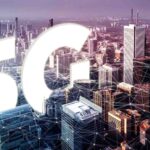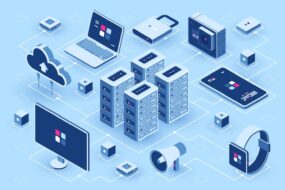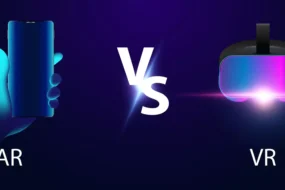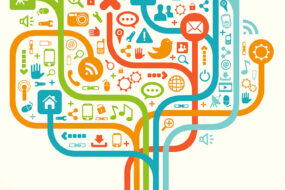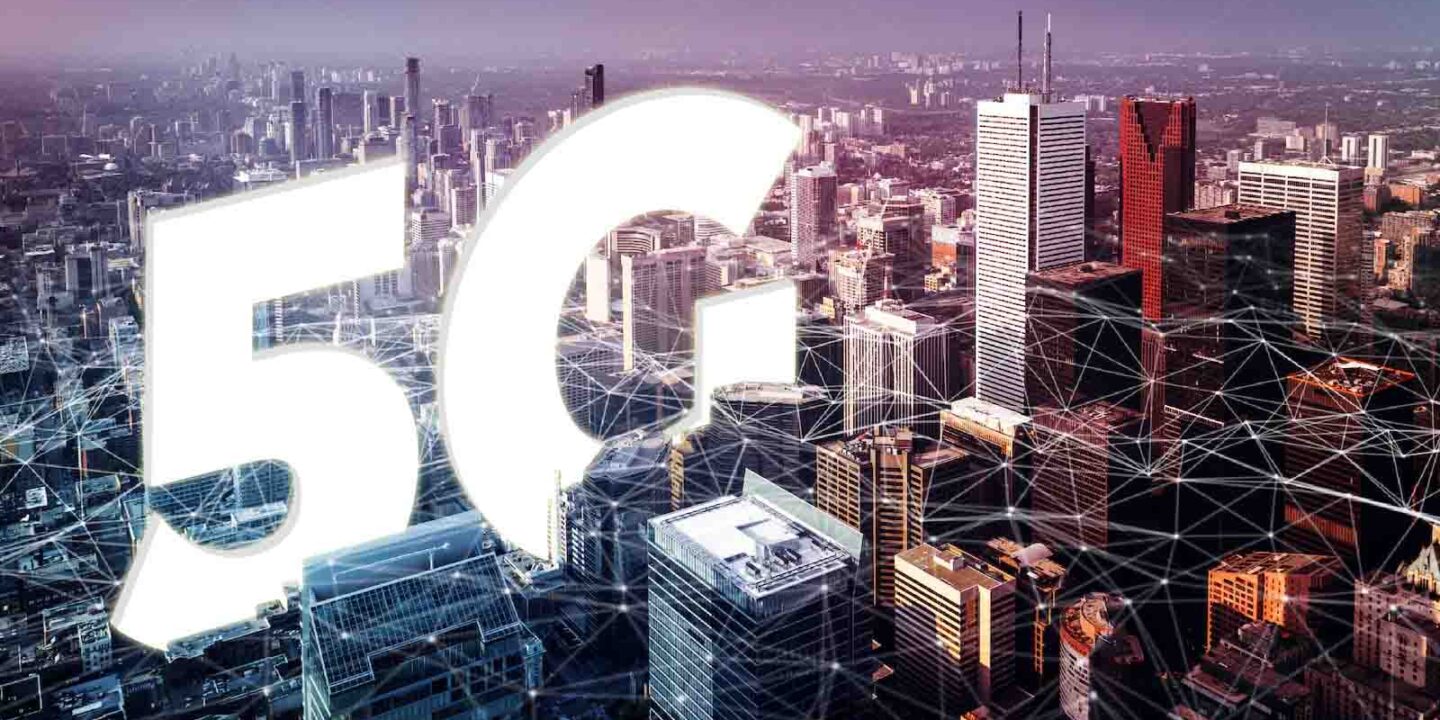
The rollout of 5G networks is poised to revolutionize the way we connect, communicate, and interact with the world around us. As the fifth generation of wireless technology, 5G promises lightning-fast speeds, ultra-reliable connections, and the ability to support a massive number of devices simultaneously. But its impact goes far beyond faster mobile internet—it’s set to catalyze breakthroughs across industries, from healthcare to smart cities, and even autonomous vehicles. In this article, we explore the incredible potential of 5G, how it will transform connectivity, and the various ways it will reshape our lives in the years to come.
1. Blazing Fast Mobile Internet: Speeds Like Never Before
One of the most anticipated benefits of 5G is the dramatic increase in mobile internet speeds. While 4G networks offer download speeds of up to 1 Gbps, 5G can theoretically achieve speeds of up to 20 Gbps, making it up to 20 times faster.
What This Means for Users:
- Seamless Streaming: 5G will enable high-definition streaming of 4K and even 8K video without buffering. It will also improve experiences in augmented reality (AR) and virtual reality (VR) by reducing latency and enhancing the quality of immersive content.
- Enhanced Gaming: Mobile gaming will reach new heights, with games that were once confined to high-performance gaming consoles or PCs now able to run seamlessly on mobile devices, thanks to the ultra-fast speeds and low latency of 5G.
- Instant Downloads: Whether downloading large files, software updates, or games, 5G will drastically reduce download times, turning minutes of waiting into mere seconds.
2. Revolutionizing Smart Cities: The Backbone of Urban Innovation
The advent of 5G networks will serve as the backbone for the development of smart cities—urban areas that leverage advanced technologies to improve the quality of life, sustainability, and efficiency. The high speeds and low latency offered by 5G will allow millions of devices to be connected in real-time, making smart cities more responsive and dynamic.
Key Impacts on Smart Cities:
- IoT Integration: 5G will support the integration of a vast number of Internet of Things (IoT) devices, such as sensors, cameras, and smart meters, which will enable cities to monitor and optimize everything from traffic flow and public transportation to waste management and energy usage.
- Enhanced Public Safety: 5G’s ability to transmit data in real-time will make surveillance systems smarter and more responsive. For example, AI-powered cameras and sensors could instantly detect unusual activities, enabling quicker emergency responses and enhancing public safety.
- Sustainable Infrastructure: With 5G, cities will be able to implement smart grids, improve the efficiency of public services like water and electricity, and track air quality in real-time, all while reducing the overall carbon footprint.
What’s Next?:
The evolution of smart cities will extend beyond simply making urban environments “smarter” by making them more sustainable, efficient, and responsive. With 5G, cities can take advantage of real-time data to address challenges like traffic congestion, energy usage, and public health crises with unprecedented precision.
3. Autonomous Vehicles: 5G as the Key to Seamless Mobility
The rise of autonomous vehicles (AVs) is another area where 5G will play a transformative role. Self-driving cars rely on a constant exchange of data between the vehicle, its surroundings, and the cloud. 5G’s high-speed, low-latency capabilities will be crucial in enabling this constant flow of data, allowing AVs to respond to their environment in real-time and ensure safety on the roads.
How 5G Enhances Autonomous Vehicles:
- Real-Time Communication: 5G will enable vehicle-to-everything (V2X) communication, allowing AVs to communicate with other vehicles, traffic lights, pedestrians, and infrastructure. This will help AVs anticipate and respond to potential hazards faster than ever before, improving safety and reducing accidents.
- Improved Decision-Making: Autonomous vehicles will rely on vast amounts of data from sensors and cameras to make decisions. 5G will allow these vehicles to process this data much faster, enabling more accurate and timely decisions in dynamic driving conditions.
- Enhanced Fleet Management: In the case of autonomous public transportation or delivery vehicles, 5G will enable more efficient fleet management, with real-time tracking, optimized routes, and faster communication between vehicles and central systems.
What’s Next?:
In the future, 5G will not only support autonomous vehicles on the road but also help bring about the development of connected, automated ecosystems. From fully automated cities with smart traffic management to synchronized fleets of AVs, 5G will enable a transportation revolution that prioritizes safety, efficiency, and sustainability.
4. Remote Healthcare: Enabling Telemedicine and Real-Time Monitoring
The healthcare industry stands to benefit immensely from the widespread adoption of 5G networks. The increased speed and reliability of 5G will support the growing demand for telemedicine, remote patient monitoring, and AI-assisted diagnostics, improving access to healthcare services and enhancing patient care.
Key Benefits of 5G in Healthcare:
- Real-Time Telemedicine: With 5G, doctors will be able to conduct high-quality video consultations with patients regardless of their location. 5G’s low latency and high bandwidth will ensure that medical professionals can conduct detailed, real-time exams, even using advanced equipment like stethoscopes or dermatoscopes remotely.
- Remote Surgery: One of the most groundbreaking applications of 5G in healthcare is its potential to enable remote surgery. Surgeons can perform complex procedures using robotic tools, controlled in real-time via 5G networks, with minimal delay or disruption.
- Wearable Health Devices: 5G will allow for more efficient real-time monitoring of patients with chronic conditions. Wearable devices like smartwatches and health trackers will transmit health data continuously, enabling healthcare providers to monitor patient conditions, make quicker diagnoses, and intervene as necessary.
What’s Next?:
As the healthcare industry continues to adopt 5G technologies, expect to see a rapid expansion of digital health solutions, including remote diagnostics, personalized treatment plans, and AI-powered health assistants, all of which can enhance care delivery and improve health outcomes.
5. Industrial Automation: The Rise of 5G-Connected Factories
Industries across the globe are already adopting Industry 4.0 technologies, and 5G will play a key role in accelerating this transformation. With its ultra-low latency and high reliability, 5G will support the real-time operation of smart factories, enabling everything from predictive maintenance to automation and robotics.
Key Applications in Industrial Automation:
- Smart Manufacturing: 5G will connect machines, robots, and sensors in manufacturing plants, enabling more efficient production processes. These networks will allow real-time adjustments to production lines based on data from sensors, improving product quality and reducing downtime.
- Autonomous Machinery: 5G will facilitate the operation of autonomous robots and drones in industrial settings. These machines can work collaboratively with human workers to streamline operations and improve safety by handling dangerous tasks.
- Predictive Maintenance: By enabling constant monitoring of machines and equipment, 5G will allow for predictive maintenance, identifying potential issues before they lead to costly breakdowns or production delays.
What’s Next?:
As 5G networks expand, factories will become smarter and more autonomous, with entire supply chains running on AI, IoT, and 5G-enabled systems. This will improve efficiency, reduce operational costs, and foster more sustainable manufacturing processes.
6. The Broader Impacts: What 5G Means for Society
Beyond specific industries, 5G will have a profound impact on society as a whole, influencing everything from how we work and learn to how we communicate and entertain ourselves.
Education: 5G will make high-quality remote learning more accessible, allowing students and teachers to interact in real-time, with enhanced multimedia content and virtual classrooms.
Entertainment: The entertainment industry will benefit from faster download speeds, immersive experiences like augmented and virtual reality, and more efficient content streaming services.
Connectivity: 5G will help bridge the digital divide, providing high-speed internet access to rural and underserved areas, ensuring more equitable access to digital services.
Conclusion: 5G—The Network of Tomorrow
5G is not just about faster internet; it’s about transforming industries, improving everyday life, and enabling new possibilities in connectivity, communication, and automation. From the rise of smart cities and autonomous vehicles to the revolution of healthcare and industrial processes, the widespread implementation of 5G will impact nearly every aspect of modern life. While we’re still in the early stages of its rollout, the future of 5G promises to unlock innovations that will shape the world for years to come—empowering faster, smarter, and more connected experiences across the globe.


